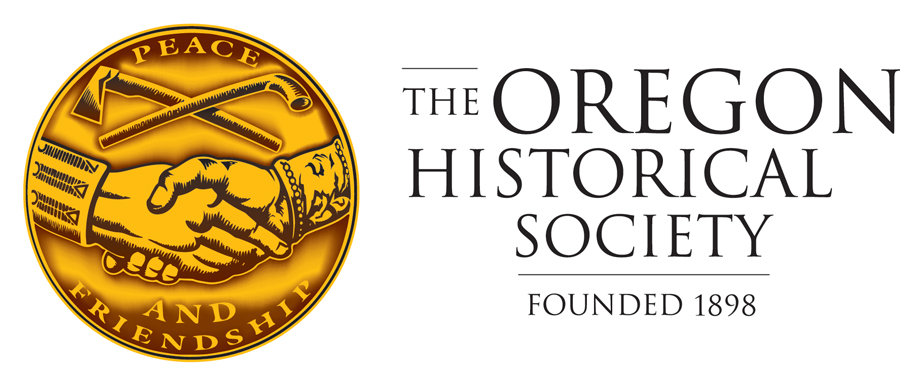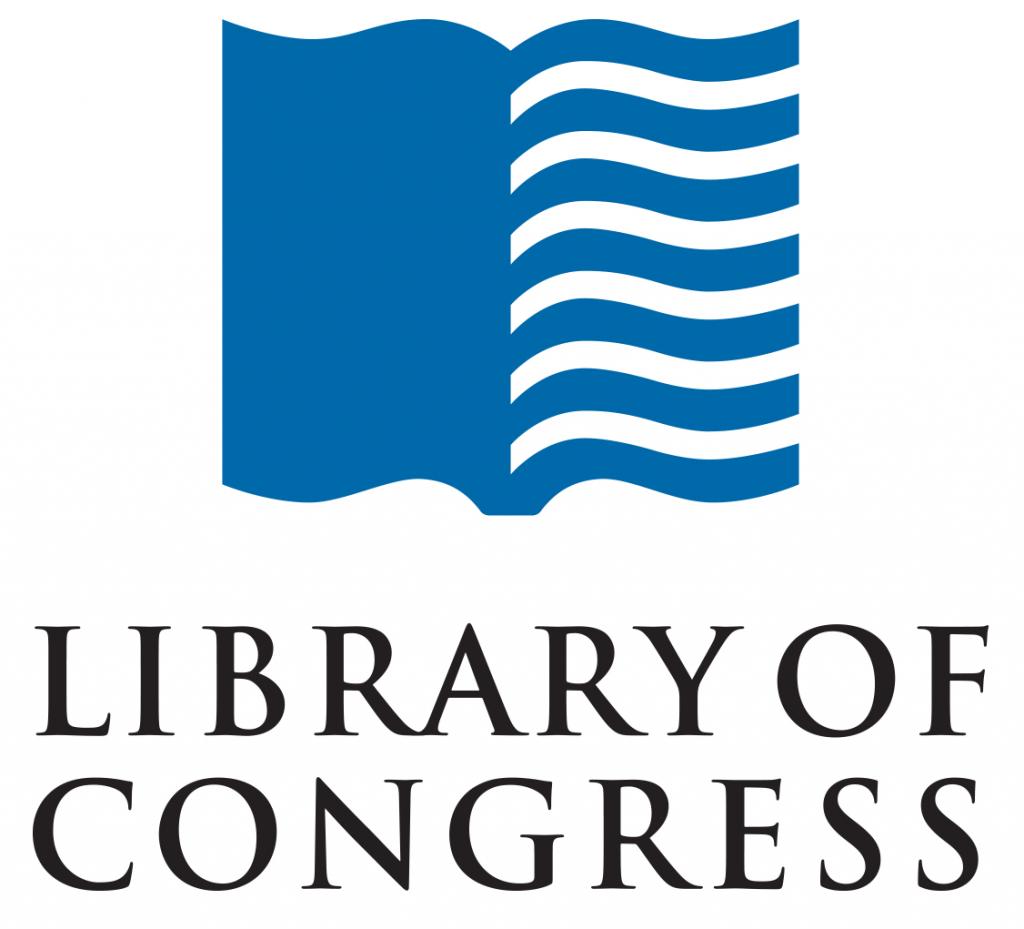from May. 13, 1865
President Lincoln's funeral
-
Full Title
President Lincoln's funeral. [Harper's Weekly illustration.]
-
Description
This illustration from Harper's Weekly depicts the funeral procession of Abraham Lincoln in an issue published on May 13, 1865. Guided by Union Soldiers on all sides, Lincoln's body is processed through the crowded streets of New York City as onlookers gather to see their beloved President. In the center of the illustration, a balcony is adorned with a banner that reads "WITH MALICE TOWARD NONE, WITH CHARITY FOR ALL," referring to Lincoln's Second Inaugural Address on March 4, 1865.
-
Source
Library of Congress, Rare Book and Special Collections Division, Alfred Whital Stern Collection of Lincolniana.
-
Rights
This item is in the public domain and may be reproduced and used for any purpose, including research, teaching, private study, publication, broadcast or commercial use, with proper citation and attribution.
-
Tags
-
Cite this Item
Mathew Brady. "President Lincoln's funeral. [Harper's Weekly illustration.]". Harper's Weekly. Remembering Lincoln. Web. Accessed December 15, 2025. https://rememberinglincoln.fords.org/node/1104
from May. 13, 1865
President Lincoln's funeral. [Harper's Weekly illustration.]
![President Lincoln's funeral. [Harper's Weekly illustration.]](https://rememberinglincoln.fords.org/sites/default/files/001r%5B1%5D.png)
-
Description
This illustration from Harper's Weekly depicts the funeral procession of Abraham Lincoln in an issue published on May 13, 1865. Guided by Union Soldiers on all sides, Lincoln's body is processed through the crowded streets of New York City as onlookers gather to see their beloved President. In the center of the illustration, a balcony is adorned with a banner that reads "WITH MALICE TOWARD NONE, WITH CHARITY FOR ALL," referring to Lincoln's Second Inaugural Address on March 4, 1865.
-
Source
Library of Congress, Rare Book and Special Collections Division, Alfred Whital Stern Collection of Lincolniana.
-
Rights
This item is in the public domain and may be reproduced and used for any purpose, including research, teaching, private study, publication, broadcast or commercial use, with proper citation and attribution.
-
Creator
Mathew Brady
-
Publisher
Harper's Weekly
-
Date
May 13, 1865
-
Material
newspaper
-
Dimensions
40.1 x 55.7 cm.
from Jul. 1, 1865
Phoebe Cary Poem on Lincoln's Death
-
Full Title
Phoebe Cary Poem on Lincoln's Death
-
Description
Philadelphia publishing house J.B. Lippincott & Co. compiled poetical tributes to President Lincoln in the months after his assassination. This piece, by Phoebe Cary, talks about how the mood of the country has changed from happiness for the end of the war to sadness for Lincoln's death. She goes on to describe his mercy and considerate leadership. Phoebe Cary was a well known poet and suffragette from Ohio. Later in life she moved to New York with her sister, Alice Cary, who was also a poet. During her lifetime she published two volumes of her own work.
-
Source
University of Wisconsin - Madison, Digitized by Google
-
Rights
This item is in the public domain and may be reproduced and used for any purpose, including research, teaching, private study, publication, broadcast or commercial use, with proper citation and attribution.
-
Tags
-
Cite this Item
Pheobe Cary. "Phoebe Cary Poem on Lincoln's Death". J.B. Lippincott & Co.. Remembering Lincoln. Web. Accessed December 15, 2025. https://rememberinglincoln.fords.org/node/1102
-
Creator
Pheobe Cary
-
Publisher
J.B. Lippincott & Co.
-
Date
1865
from Jul. 1, 1865
Phoebe Cary Poem on Lincoln's Death
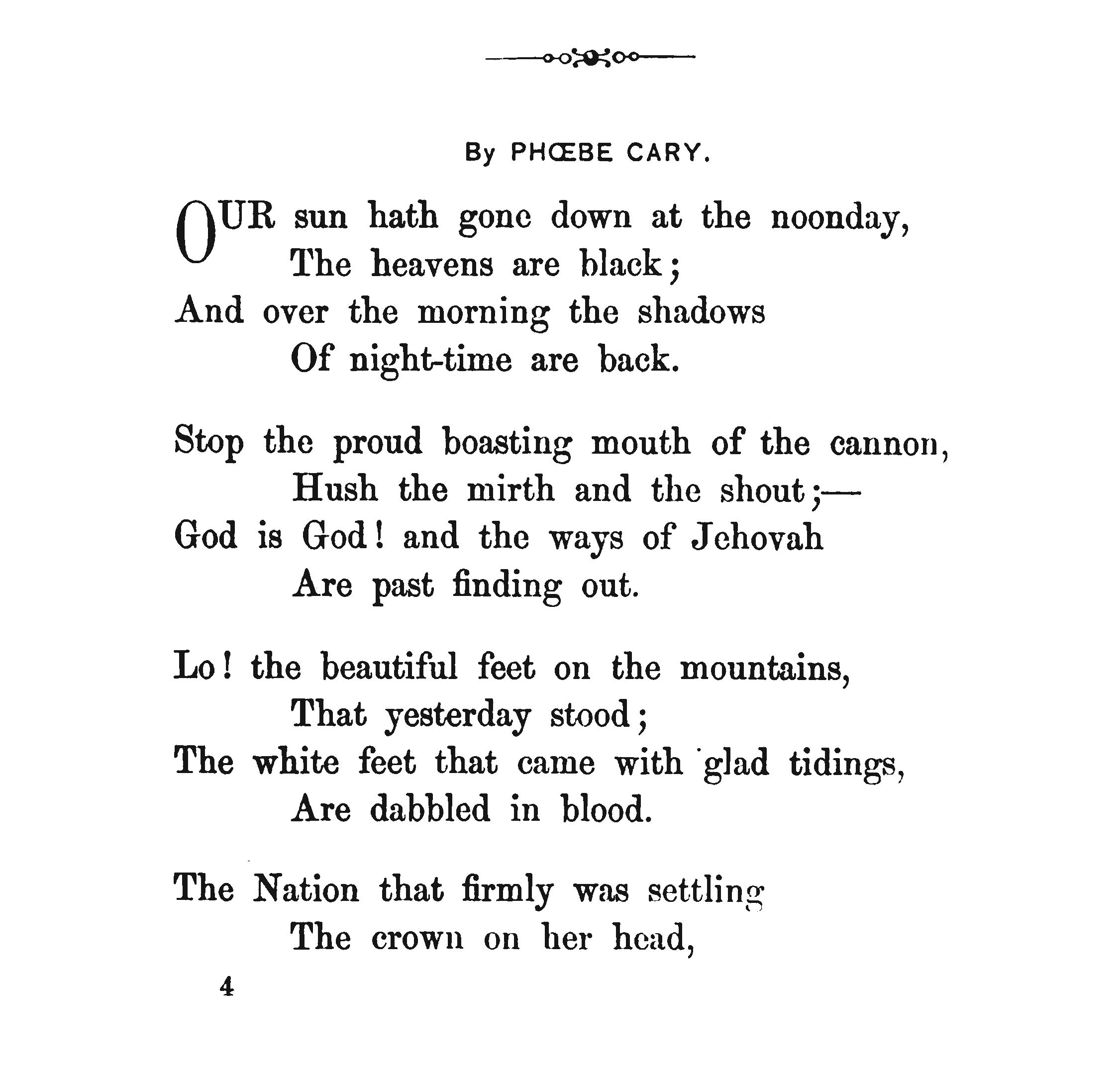
-
Description
Philadelphia publishing house J.B. Lippincott & Co. compiled poetical tributes to President Lincoln in the months after his assassination. This piece, by Phoebe Cary, talks about how the mood of the country has changed from happiness for the end of the war to sadness for Lincoln's death. She goes on to describe his mercy and considerate leadership. Phoebe Cary was a well known poet and suffragette from Ohio. Later in life she moved to New York with her sister, Alice Cary, who was also a poet. During her lifetime she published two volumes of her own work.
-
Source
University of Wisconsin - Madison, Digitized by Google
-
Rights
This item is in the public domain and may be reproduced and used for any purpose, including research, teaching, private study, publication, broadcast or commercial use, with proper citation and attribution.
-
Creator
Pheobe Cary
-
Publisher
J.B. Lippincott & Co.
-
Date
July 1, 1865
from Jul. 1, 1865
Julia Ward Howe Poem
-
Full Title
Poetical Tribute to President Lincoln - Julia Ward Howe
-
Description
Philadelphia publishing house J.B. Lippincott & Co. compiled poetical tributes to President Lincoln in the months after his assassination. This piece, by Julia Ward Howe, talks about Lincoln's legacy and how to honor him and his contributions to the nation. Julia Ward Howe was an abolitionist, suffragette and author, most famous for writing "The Battle Hymn of the Republic," which is now one of the most famous songs of the Civil War. She was inspired to write the song after meeting with President Lincoln at the White House in November 1861.
-
Source
University of Wisconsin - Madison, Digitized by Google
-
Rights
This item is in the public domain and may be reproduced and used for any purpose, including research, teaching, private study, publication, broadcast or commercial use, with proper citation and attribution.
-
Tags
-
Cite this Item
Julia Ward Howe. "Poetical Tribute to President Lincoln - Julia Ward Howe". J.B. Lippincott & Co.. Remembering Lincoln. Web. Accessed December 15, 2025. https://rememberinglincoln.fords.org/node/1100
-
Creator
Julia Ward Howe
-
Publisher
J.B. Lippincott & Co.
-
Date
1865
from Jul. 1, 1865
Poetical Tribute to President Lincoln - Julia Ward Howe
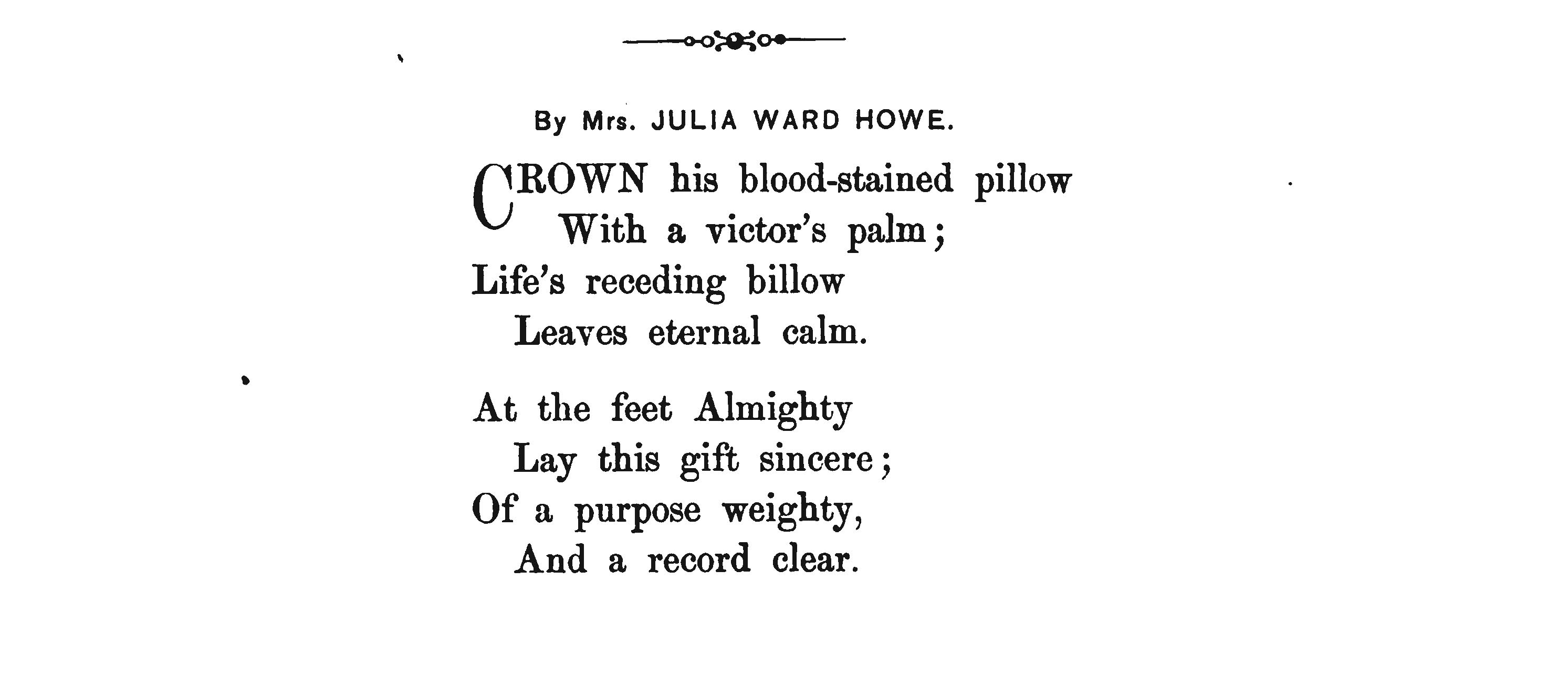
-
Description
Philadelphia publishing house J.B. Lippincott & Co. compiled poetical tributes to President Lincoln in the months after his assassination. This piece, by Julia Ward Howe, talks about Lincoln's legacy and how to honor him and his contributions to the nation. Julia Ward Howe was an abolitionist, suffragette and author, most famous for writing "The Battle Hymn of the Republic," which is now one of the most famous songs of the Civil War. She was inspired to write the song after meeting with President Lincoln at the White House in November 1861.
-
Source
University of Wisconsin - Madison, Digitized by Google
-
Rights
This item is in the public domain and may be reproduced and used for any purpose, including research, teaching, private study, publication, broadcast or commercial use, with proper citation and attribution.
-
Creator
Julia Ward Howe
-
Publisher
J.B. Lippincott & Co.
-
Date
July 1, 1865
from Jul. 1, 1865
William Cullen Bryant Poem
-
Full Title
Poetical Tribute to President Lincoln - William Cullen Bryant
-
Description
Philadelphia publishing house J.B. Lippincott & Co. compiled poetical tributes to President Lincoln in the months after his assassination. This piece, by Poet William Cullen Bryant, speaks of Lincoln's life and greatest accomplishment, freeing the slave. Bryant was considered a child-prodigy, publishing his first poem at age ten and his first book when he was thirteen. He later served as editor for the New York Evening Post. He was a member of the Republican Party and actually introduced Abraham Lincoln at Cooper Union in New York when Lincoln gave his famed "Cooper Union Speech" in 1860.
-
Source
University of Wisconsin - Madison, Digitized by Google
-
Rights
This item is in the public domain and may be reproduced and used for any purpose, including research, teaching, private study, publication, broadcast or commercial use, with proper citation and attribution.
-
Tags
-
Cite this Item
William Cullen Bryant. "Poetical Tribute to President Lincoln - William Cullen Bryant". J. B. Lippincott & Co.. Remembering Lincoln. Web. Accessed December 15, 2025. https://rememberinglincoln.fords.org/node/1099
-
Creator
William Cullen Bryant
-
Publisher
J. B. Lippincott & Co.
-
Date
1865
from Jul. 1, 1865
Poetical Tribute to President Lincoln - William Cullen Bryant
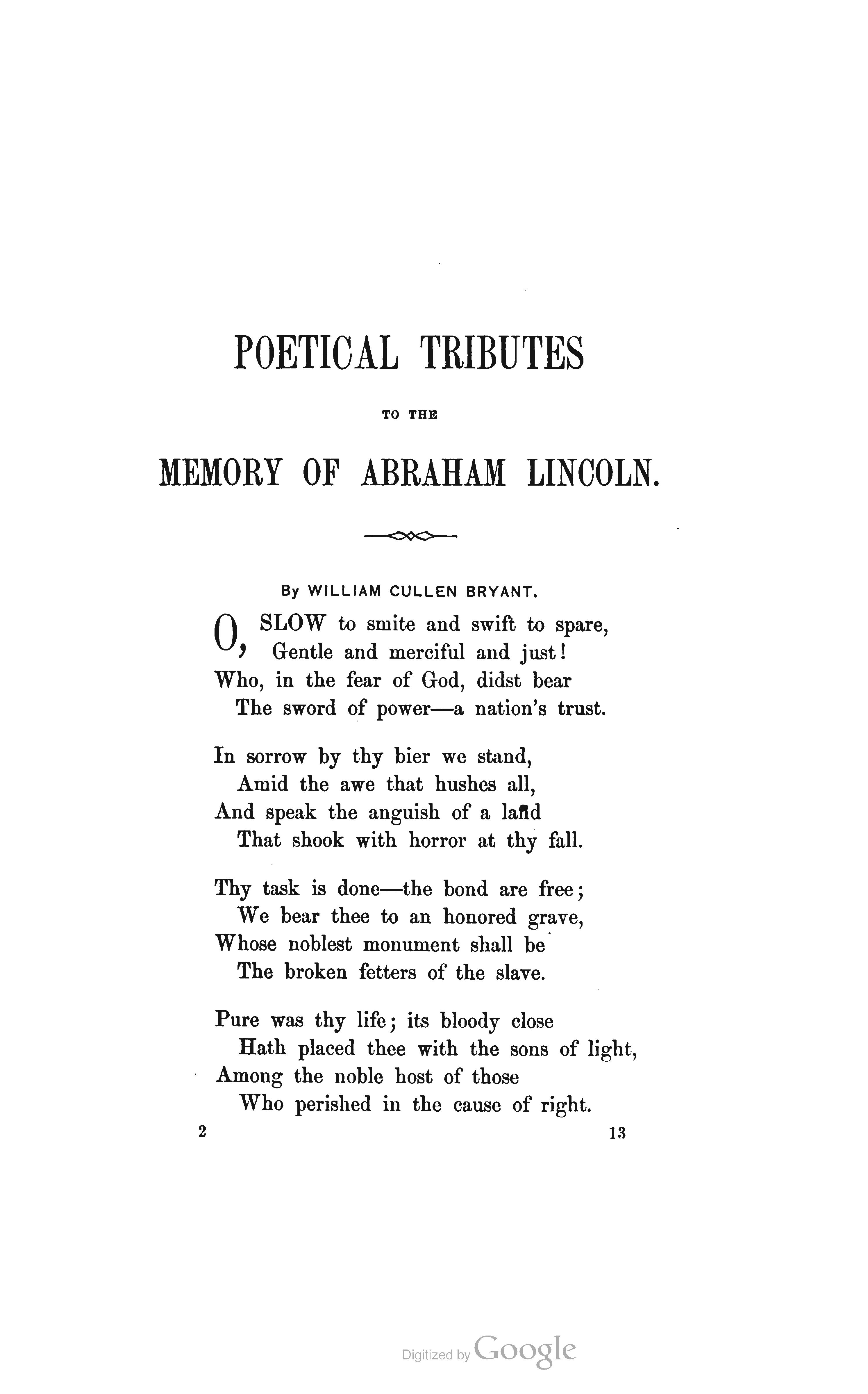
-
Description
Philadelphia publishing house J.B. Lippincott & Co. compiled poetical tributes to President Lincoln in the months after his assassination. This piece, by Poet William Cullen Bryant, speaks of Lincoln's life and greatest accomplishment, freeing the slave. Bryant was considered a child-prodigy, publishing his first poem at age ten and his first book when he was thirteen. He later served as editor for the New York Evening Post. He was a member of the Republican Party and actually introduced Abraham Lincoln at Cooper Union in New York when Lincoln gave his famed "Cooper Union Speech" in 1860.
-
Source
University of Wisconsin - Madison, Digitized by Google
-
Rights
This item is in the public domain and may be reproduced and used for any purpose, including research, teaching, private study, publication, broadcast or commercial use, with proper citation and attribution.
-
Creator
William Cullen Bryant
-
Publisher
J. B. Lippincott & Co.
-
Date
July 1, 1865
from Apr. 15, 1865
A Proclamation by Rhode Island Governor
-
Full Title
A Proclamation by James Youngs Smith, Governor of the State of Rhode Island
-
Description
James Youngs Smith, the 29th Governor of Rhode Island, issued a proclamation on the day of Abraham Lincoln's assassination asking the clergy of Rhode Island to commemorate the President and pray for the country during the upcoming Sunday services. Born in Groton, Connecticut in 1809, Smith moved to Providence, Rhode Island at the age of 16 to work for a lumber business. Later in life he bought mills in both Connecticut and Rhode Island. He served three terms as Governor of Rhode Island as a Republican before declining to run for a fourth term. He served throughout the Civil War and was able to fill the state's troop quota through voluntary enlistment because the citizens of Rhode Island opposed drafting soldiers. Smith married Emily Brown, the daughter of a cotton manufacturer from Massachusetts and had three children.
-
Source
Library of Congress, Rare Book And Special Collections Division
-
Rights
Transmission or reproduction of protected items beyond that allowed by fair use requires the written permission of the copyright owners.
-
Tags
-
Cite this Item
James Y. Smith. "A Proclamation by James Youngs Smith, Governor of the State of Rhode Island". Rhode Island, Governor. Remembering Lincoln. Web. Accessed December 15, 2025. https://rememberinglincoln.fords.org/node/1093
-
Creator
James Y. Smith
-
Publisher
Rhode Island, Governor
-
Date
April 15, 1865
-
Material
Printed on page [1] of a single-folded sheet.
-
Dimensions
21 cm.
from Apr. 15, 1865
A Proclamation by James Youngs Smith, Governor of the State of Rhode Island
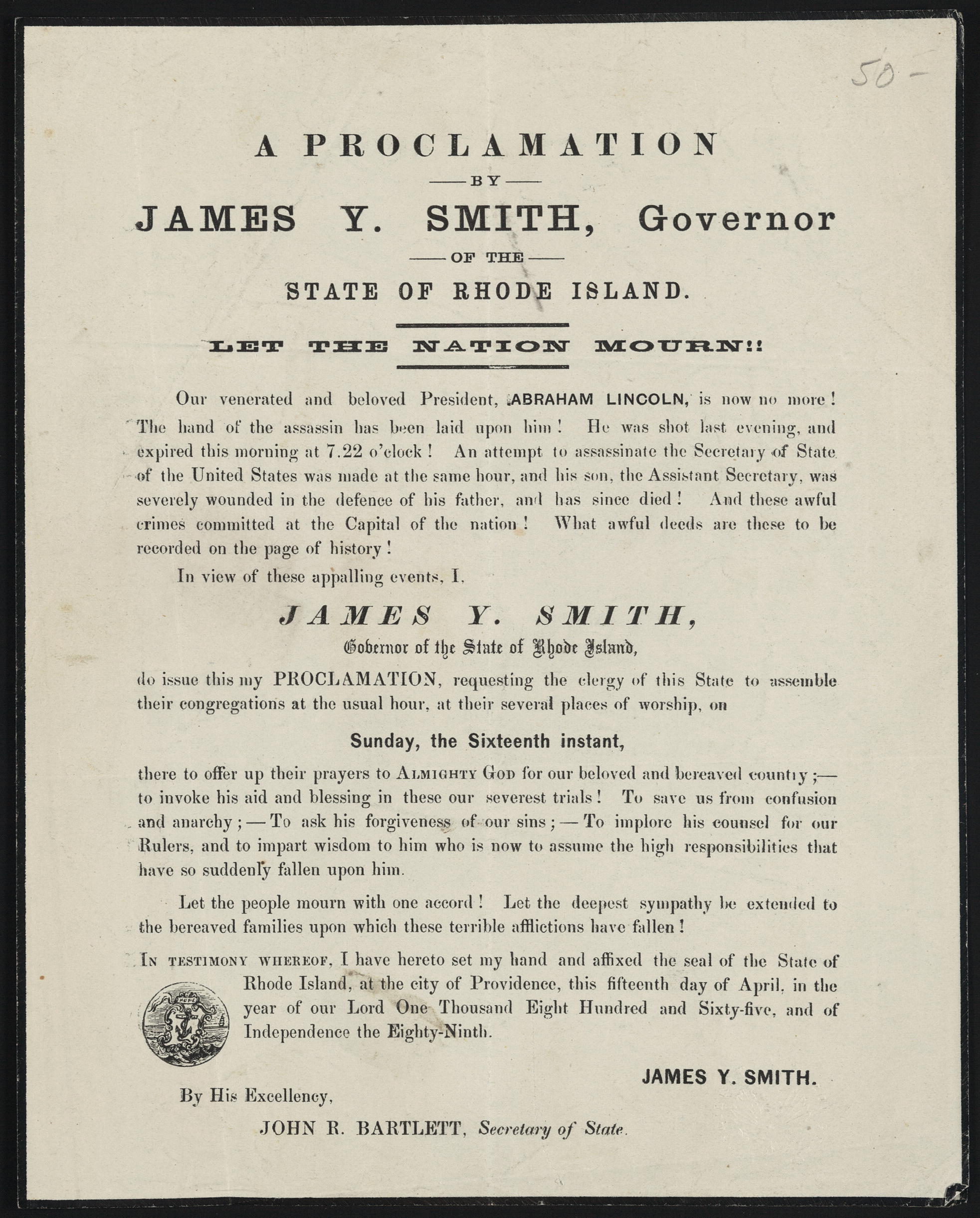
-
Description
James Youngs Smith, the 29th Governor of Rhode Island, issued a proclamation on the day of Abraham Lincoln's assassination asking the clergy of Rhode Island to commemorate the President and pray for the country during the upcoming Sunday services. Born in Groton, Connecticut in 1809, Smith moved to Providence, Rhode Island at the age of 16 to work for a lumber business. Later in life he bought mills in both Connecticut and Rhode Island. He served three terms as Governor of Rhode Island as a Republican before declining to run for a fourth term. He served throughout the Civil War and was able to fill the state's troop quota through voluntary enlistment because the citizens of Rhode Island opposed drafting soldiers. Smith married Emily Brown, the daughter of a cotton manufacturer from Massachusetts and had three children.
-
Source
Library of Congress, Rare Book And Special Collections Division
-
Rights
Transmission or reproduction of protected items beyond that allowed by fair use requires the written permission of the copyright owners.
-
Creator
James Y. Smith
-
Publisher
Rhode Island, Governor
-
Date
April 15, 1865
-
Material
Printed on page [1] of a single-folded sheet.
-
Dimensions
21 cm.
from
Drum played at the funeral of Abraham Lincoln
-
Full Title
Drum played at the funeral of Abraham Lincoln
-
Description
Drum played at the funeral of Abraham Lincoln by W. H. Brooks, a resident of Portland, OR and Hillsboro, OR after 1908. Brooks enlisted in the Union army in 1861 when he was 14 years old and served in the 14th Iowa Regiment in a brigade the Confederates dubbed the "Hornets' Nest" because it so fiercely defended its position in a sunken road at Shiloh, Tennessee. In 1931, Brooks told an Oregonian reporter he had marched more than 800 miles before his discharge from the army. He recounted, "I was in the consolidated drum corps that played in the funeral procession of President Lincoln from the city to Oak Ridge cemetery in May 1865. I saw the president's casket placed in the vault."
-
Source
Oregon Historical Society
-
Rights
Use of this item for research, teaching, and private study is permitted with proper citation and attribution. Reproduction of this item for publication, broadcast, or commercial use requires written permission.
-
Tags
-
Cite this Item
William Henry Brooks, 14th Iowa Regiment. "Drum played at the funeral of Abraham Lincoln". Remembering Lincoln. Web. Accessed December 15, 2025. https://rememberinglincoln.fords.org/node/1041
from
Drum played at the funeral of Abraham Lincoln
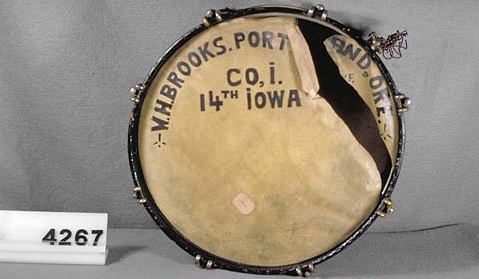
-
Description
Drum played at the funeral of Abraham Lincoln by W. H. Brooks, a resident of Portland, OR and Hillsboro, OR after 1908. Brooks enlisted in the Union army in 1861 when he was 14 years old and served in the 14th Iowa Regiment in a brigade the Confederates dubbed the "Hornets' Nest" because it so fiercely defended its position in a sunken road at Shiloh, Tennessee. In 1931, Brooks told an Oregonian reporter he had marched more than 800 miles before his discharge from the army. He recounted, "I was in the consolidated drum corps that played in the funeral procession of President Lincoln from the city to Oak Ridge cemetery in May 1865. I saw the president's casket placed in the vault."
-
Source
Oregon Historical Society
-
Rights
Use of this item for research, teaching, and private study is permitted with proper citation and attribution. Reproduction of this item for publication, broadcast, or commercial use requires written permission.
-
Creator
William Henry Brooks, 14th Iowa Regiment
-
Dimensions
diameter 16"; depth 9"
from Apr. 14, 1865
Silas H. Billings Diary
-
Full Title
Silas H. Billings Diary
-
Description
Silas H. Billings was a U.S. Army soldier from Lafayette, New York, wounded at the Battle of Winchester in September 1864. In April 1865 he was a patient at Saterlee Hospital in Philadelphia, Pennsylvania, when he learned that John Wilkes Booth had assassinated President Abraham Lincoln. Billings then received permission to attend Lincoln's funeral in Philadelphia. Like many people at the time, Billings recorded both newsworthy events, like Lincoln's assassination, and the details of his everyday life together. After the Civil War, Billings became a school teacher and part-time farmhand. His wounds led to his death in 1873, at the age of only 30.
-
Transcription
[inside cover]
Silas H. Billings
Wounded at
Winchester Va
Sept 19 1864
[Friday, April 14, 1865]
Abraham Lincoln
is Shot at Fords
Theatre at 9,30 p m and dies at 722 am
Wm H & Fred Seward are stabbed at or
about the same time
[Saturday, April 15, 1865]
my eye is very bad
[Wednesday, April 19, 1865]
Funeral of our Chief
Abraham Lincoln
President of the
U S of America
Recd a Visit from
C F Falch co. "D" 9 ny
Ward 2 Turners Lane
[Saturday, April, 22, 1865]
Recd a pass 2 pm to 9 pm
went downtown to Corner
of Broad & Prime Sts
Funeral Train of the
late President A Lincoln
arrives at 4,30 pm
Procession is formed in
Broad & goes down to
Walnut up to 21st
down to Vine down to
2nd up to Chesnut to
Independence Hall on
Chesnut between 5th & 6th
-
Source
Marjorie Billings Martinez, great-granddaughter of Silas H. Billings
-
Rights
This item may be reproduced and used for any purpose, including research, teaching, private study, publication, broadcast or commercial use, with proper citation and attribution.
-
Tags
-
Cite this Item
Silas H. Billings. "Silas H. Billings Diary". Remembering Lincoln. Web. Accessed December 15, 2025. https://rememberinglincoln.fords.org/node/1040
-
Creator
Silas H. Billings
-
Date
April 14, 1865
from Apr. 14, 1865
Silas H. Billings Diary
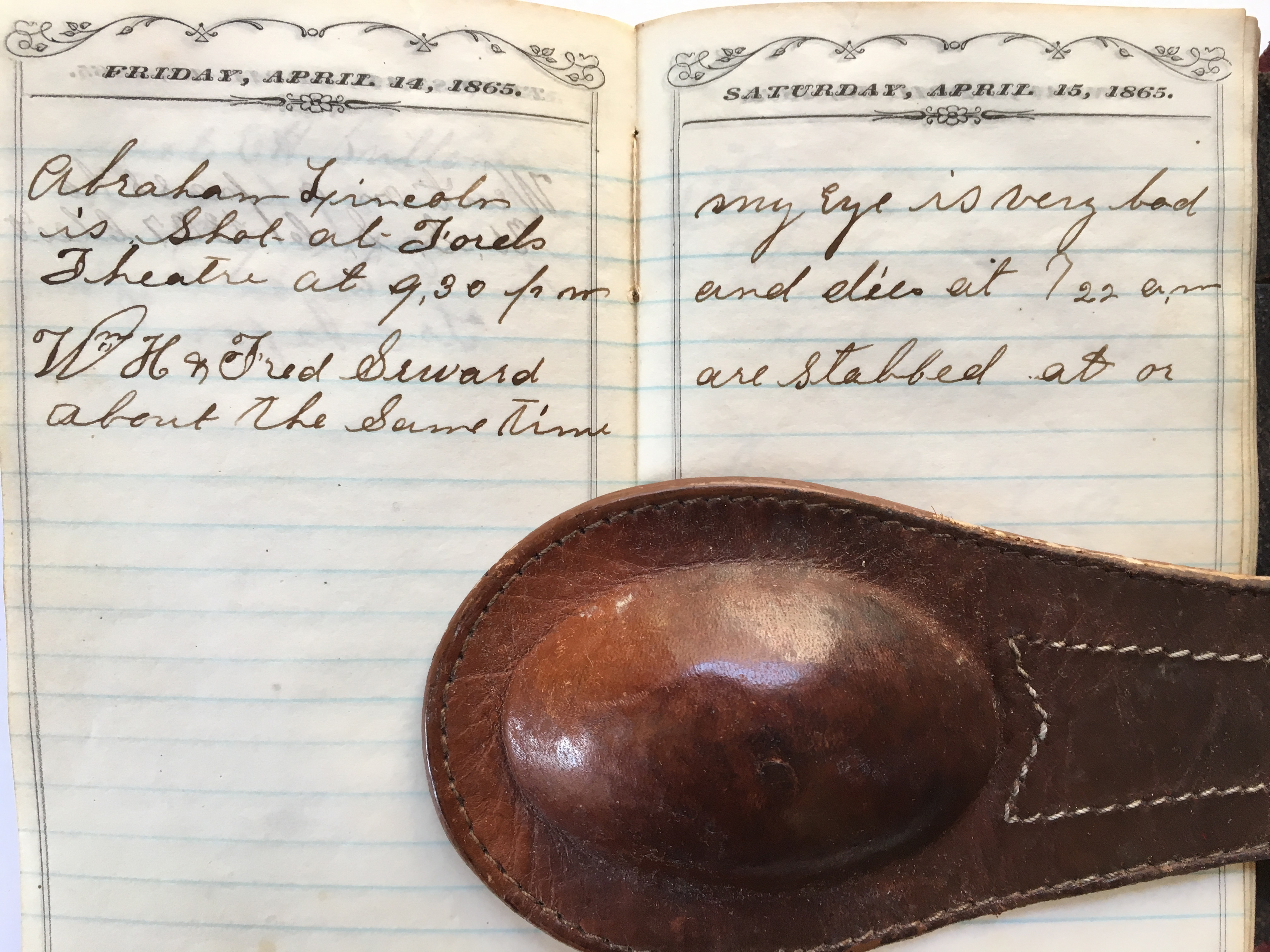
-
Description
Silas H. Billings was a U.S. Army soldier from Lafayette, New York, wounded at the Battle of Winchester in September 1864. In April 1865 he was a patient at Saterlee Hospital in Philadelphia, Pennsylvania, when he learned that John Wilkes Booth had assassinated President Abraham Lincoln. Billings then received permission to attend Lincoln's funeral in Philadelphia. Like many people at the time, Billings recorded both newsworthy events, like Lincoln's assassination, and the details of his everyday life together. After the Civil War, Billings became a school teacher and part-time farmhand. His wounds led to his death in 1873, at the age of only 30.
-
Source
Marjorie Billings Martinez, great-granddaughter of Silas H. Billings
-
Rights
This item may be reproduced and used for any purpose, including research, teaching, private study, publication, broadcast or commercial use, with proper citation and attribution.
-
Creator
Silas H. Billings
-
Date
April 14, 1865
from May. 1, 1865
The President's grave
-
Full Title
The President's grave
-
Description
Work for vocal quartet and piano associated with the Union side. Part of the Library of Congress Civil War Sheet Music Collection.
-
Transcription
Verse 1
Be silent! there cometh on spirit wings sped,
The wail of a nation in grief for the dead;
The strong and the mighty, from glory and light,
Hath waned in his brightness and left us in night;
The proud eagle banners all droopingly wave,
And the wild wings are hushed round the President's grave.
And the wild winds are hushed round the President's grave.
Verse 2
A deep brooding sorrow comes over the heart
A moan like the tempest, when summers depart,
A gushing of anguish, unbroken and still,
As tolleth the requiem o'er valley and hill;
The sun that rose bright o'er the free and the brave
Now is setting in gloom o'er the President's grave.
Now is setting in gloom o'er the President's grave.
Verse 3
Be silent! our father hath laid him to rest,
A hero of battles hath yielded his crest,
A statesman hath fallen, his counsels are o'er,
His firmness and wisdom shall guide us no more:
Let cannon boom forth and the banners all wave,
While we mingle our tears o'er the President's grave.
While we mingle our tears o'er the President's grave.
-
Source
-
Rights
Public Domain. Suggested credit line: Civil War Sheet Music Collection, Library of Congress, Music Division.
-
Tags
-
Cite this Item
Miller, L. B. (composer); Babbitt, Edwin S. (lyricist). "The President's grave". Chicago: Root & Cady, 1865. Remembering Lincoln. Web. Accessed December 15, 2025. https://rememberinglincoln.fords.org/node/1035
from May. 1, 1865
The President's grave

-
Description
Work for vocal quartet and piano associated with the Union side. Part of the Library of Congress Civil War Sheet Music Collection.
-
Source
-
Rights
Public Domain. Suggested credit line: Civil War Sheet Music Collection, Library of Congress, Music Division.
-
Creator
Miller, L. B. (composer); Babbitt, Edwin S. (lyricist)
-
Publisher
Chicago: Root & Cady, 1865
-
Date
May 1, 1865
-
Material
Sheet Music
from May. 1, 1865
Requiem march in honor of President Lincoln
-
Full Title
Requiem march in honor of President Lincoln
-
Description
This is sheet music for President Lincoln's funeral march for solo piano. The title on the cover page is "Requiem March In honor of President Lincoln," while the first page of music lists the title as "President Lincoln's funeral march." A requiem is traditionally in a minor key and imitates the solemn, slow pace of a funeral procession. This piece is part of the Library of Congress Civil War Sheet Music Collection, associated with the Union side. Probably a third of the entire U.S. population at the time, out of a total of 31 million, participated in some kind of memorial commemoration for Lincoln. Roughly 150,000 people were present at Lincoln's funeral in Springfield.
-
Source
-
Rights
Public Domain. Suggested credit line: Civil War Sheet Music Collection, Library of Congress, Music Division.
-
Tags
-
Cite this Item
Fiske, W. O.. "Requiem march in honor of President Lincoln". Boston: Oliver Ditson & Co., 1865. Remembering Lincoln. Web. Accessed December 15, 2025. https://rememberinglincoln.fords.org/node/1033
from May. 1, 1865
Requiem march in honor of President Lincoln

-
Description
This is sheet music for President Lincoln's funeral march for solo piano. The title on the cover page is "Requiem March In honor of President Lincoln," while the first page of music lists the title as "President Lincoln's funeral march." A requiem is traditionally in a minor key and imitates the solemn, slow pace of a funeral procession. This piece is part of the Library of Congress Civil War Sheet Music Collection, associated with the Union side. Probably a third of the entire U.S. population at the time, out of a total of 31 million, participated in some kind of memorial commemoration for Lincoln. Roughly 150,000 people were present at Lincoln's funeral in Springfield.
-
Source
-
Rights
Public Domain. Suggested credit line: Civil War Sheet Music Collection, Library of Congress, Music Division.
-
Creator
Fiske, W. O.
-
Publisher
Boston: Oliver Ditson & Co., 1865
-
Date
May 1, 1865
-
Material
Sheet Music
from May. 1, 1865
Lincoln's funeral march
-
Full Title
Lincoln's funeral march: as played by Menter's Band
-
Description
Funeral march for solo piano. The composer dedicated this work "to the nation" and it was composed "in commemoration of Abraham Lincoln, President of the United States, The Savior of His Country." Part of the Library of Congress Civil War Sheet Music Collection, associated with the Union side.
-
Source
-
Rights
Public Domain. Suggested credit line: Civil War Sheet Music Collection, Library of Congress, Music Division.
-
Tags
-
Cite this Item
Hess, Charles. "Lincoln's funeral march: as played by Menter's Band". Cincinnati: A. C. Peters & Bro., 1865. Remembering Lincoln. Web. Accessed December 15, 2025. https://rememberinglincoln.fords.org/node/1032
from May. 1, 1865
Lincoln's funeral march: as played by Menter's Band

-
Description
Funeral march for solo piano. The composer dedicated this work "to the nation" and it was composed "in commemoration of Abraham Lincoln, President of the United States, The Savior of His Country." Part of the Library of Congress Civil War Sheet Music Collection, associated with the Union side.
-
Source
-
Rights
Public Domain. Suggested credit line: Civil War Sheet Music Collection, Library of Congress, Music Division.
-
Creator
Hess, Charles
-
Publisher
Cincinnati: A. C. Peters & Bro., 1865
-
Date
May 1, 1865
-
Material
Sheet Music

